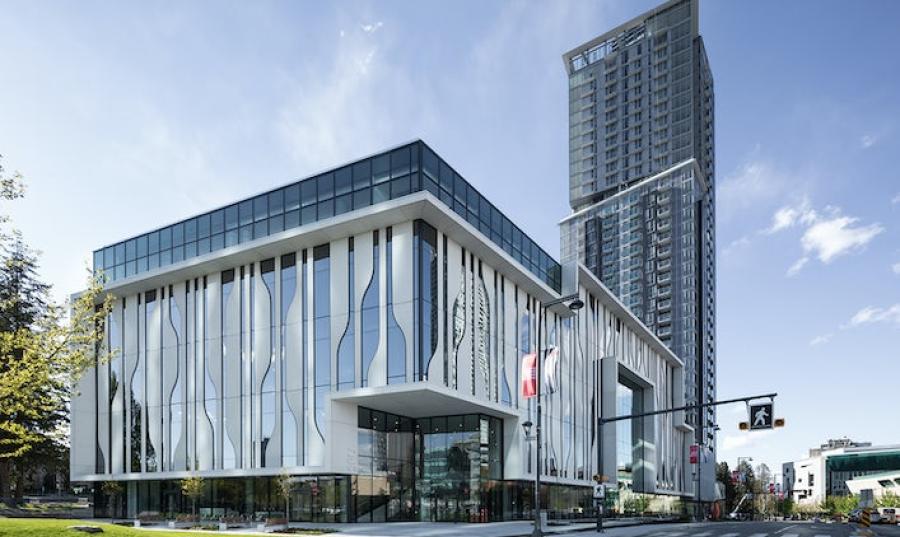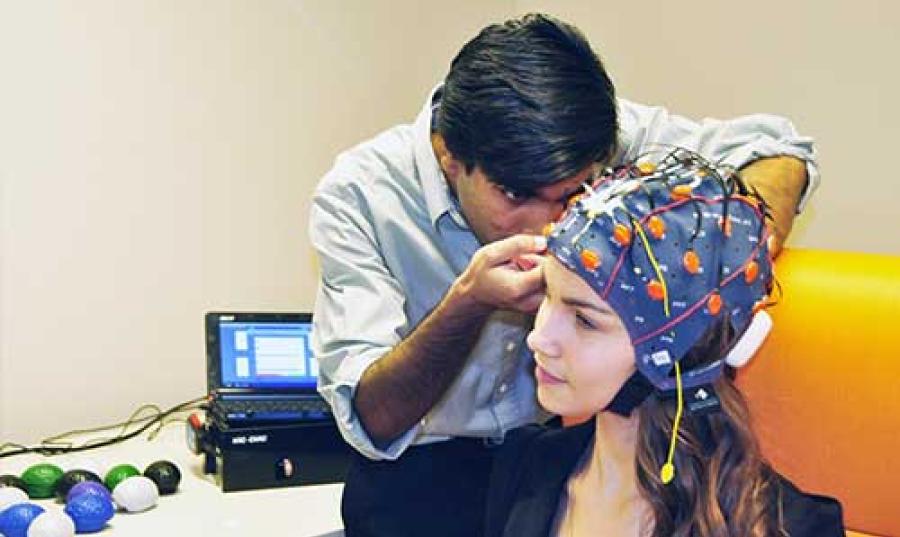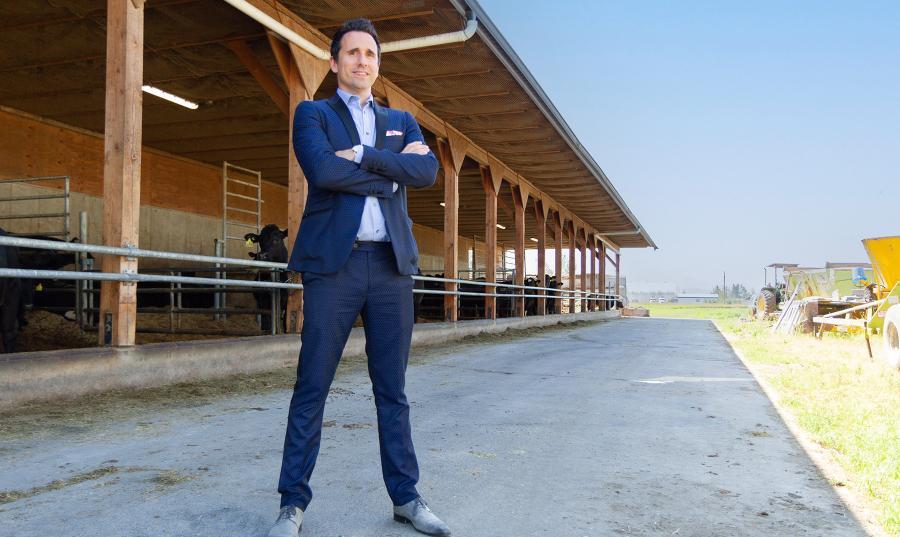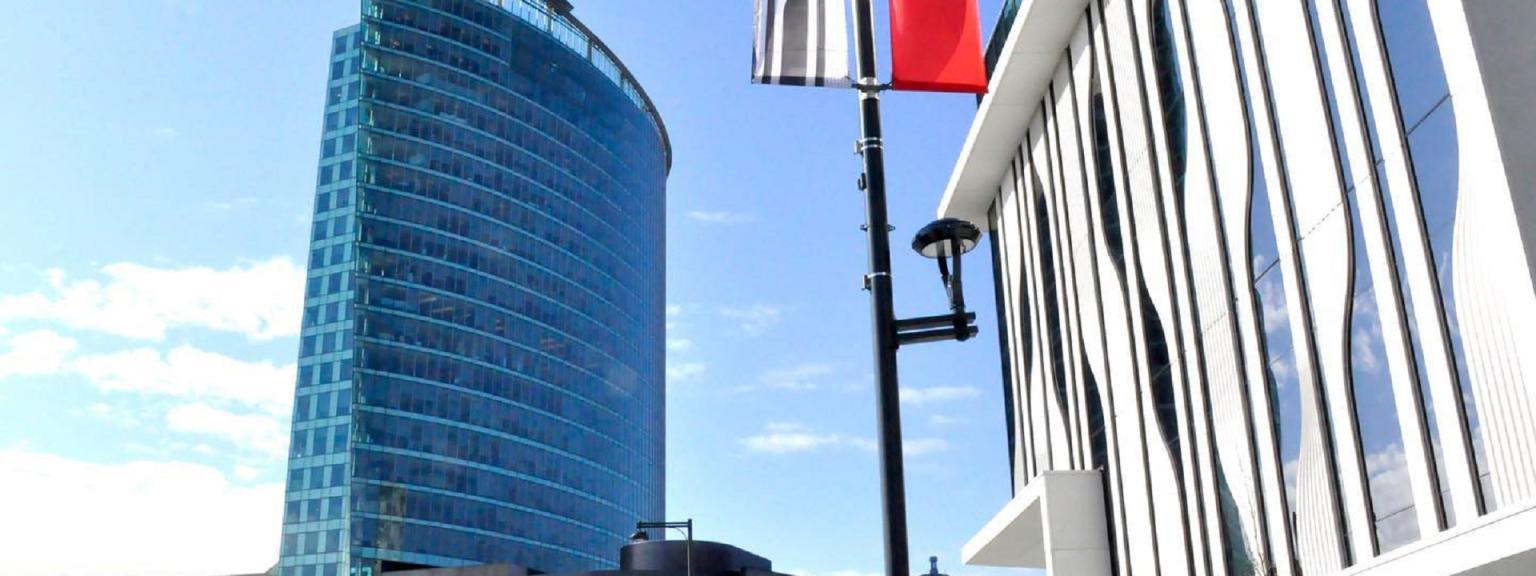
It was 20 years ago that Simon Fraser University (SFU) announced it would be opening up in Surrey – Whalley, specifically.
This began two decades of consistent partnerships between the university and the City that has shaped Surrey's downtown core transformation into what is now known as City Centre.
And the last two decades have been a consistent partnership between the university and the City.
“Our best decision was locating a campus in Surrey City Centre,” noted Joanne Curry, SFU’s vice-president of external relations. “The second-best decision was developing a partnership with the City of Surrey, not just mayor and council, but very importantly at all levels of staff, and particularly for economic development.”
Curry said having such a strong partnership with the city has allowed SFU Surrey to “do so much more together.”
“It’s really rewarding to think of SFU’s role to help catalyze City Centre and to be part of the growth and development and increased recognition of Surrey as an economic powerhouse.”
Some highlights on partnerships between the City of Surrey and SFU Surrey:
- In 2015, the city established its Digital Services Team within the Information Technology Division to partner with all departments to expand the city’s online services offerings. The City hired SFU Interactive Arts and Technology students through a co-op program to establish a User Experience (UX) Design Team. Since then, the city has employed nine students through the co-op program, six of which extended their tenure with the city beyond the co-op. One student from the SFU program became the City’s senior UX designer.
- In 2017, the City's engineering and transportation staff worked with SFU alumni to test a sensor-based parking app described as the "AirBnB of Parking". This project, incorporated as "Open Spot Parking" was purchased within 2 years of launch by an international venture capital and then went on to be acquired by the multi-billion-dollar technology equity firm, Softbank.
- A more recent partnership is the three-year Innovations in Mobile Thermal Energy Storage: Using Waste Heat to Power Communities. It’s a collaboration between SFU, the City of Surrey, Canmet Energy and the Pacific Institute for Climate Solutions that “closes the gap between far-flung sources of industrial waste energy and densely populated urban area, using a liquid that stores thermal energy chemically,” notes a 2021 release from SFU.
- There has also been the collaboration between the City of Surrey and SFU’s School of Mechatronics Systems Engineering (MSE), identifying Industry 4.0 as a niche focus for Surrey. John Zheng Shen, the director and a professor at MSE, said Industry. 4.0 was first invented in Germany, but is now gaining momentum elsewhere. He said it’s “basically smart manufacturing.” Shen said MSE has developed a professional masters program, Smart Manufacturing and Systems, focusing on Industry 4.0, that welcomed its first cohort on Wednesday (Sept. 7).
I don’t know if I can predict in 20 years, what it’s going to look like, but if we can just continue this pace and impact, I’ll be really happy.
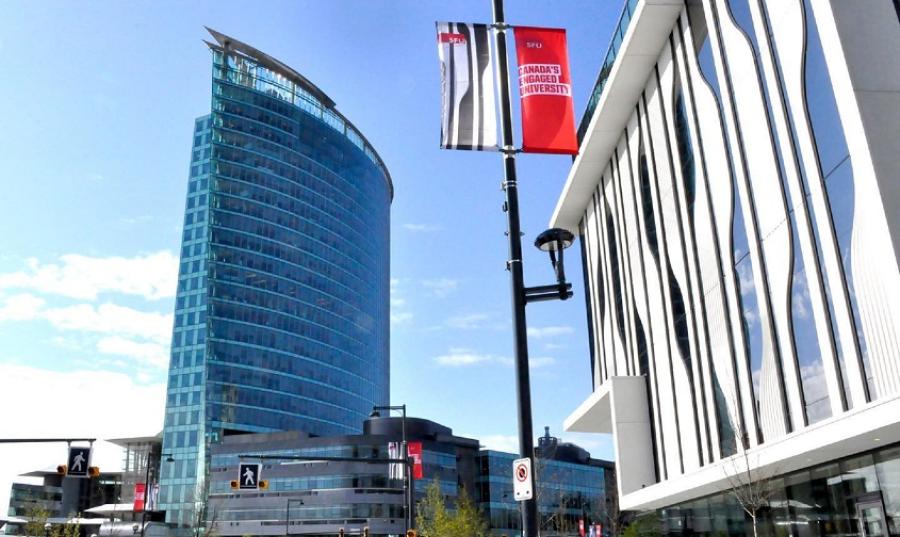
From an old Zellers space to two anchor buildings
Over the last 20 years, SFU Surrey has grown from a campus in the old Zellers space into “two anchor buildings, and numerous classroom and research spaces embedded within the surrounding community.”
The SFU Surrey campus’s two anchor building include SFU at Central City, the 200,375 sq.-ft. space designed by Bing Thom that officially opened 16 years ago on Sept. 9, 2006, and SFU on University Drive that opened in 2019 and is home to the university’s Sustainable Energy Engineering program, which is the first of its kind in Western Canada.
A presence throughout Surrey City Centre
But SFU’s presence and innovation assets are also spread out throughout the rest of Surrey City Centre.
- There are the WearTech Labs in City Centre 2 in the Health & Technology District where “SFU researchers and their partners across academia and industry will explore and develop wearable technology to record biomedical signals and vital signs, design garments with transformative textile embedded with innovative artificial muscles, and innovate miniaturized systems that can harvest energy from the body and environment to power wearable biomedical technologies.”
- At Surrey Memorial Hospital, SFU’s ImageTech Lab at Surrey Memorial Hospital, a “world-class imaging research facility” that houses “advanced body and brain imaging equipment to support the treatment of a variety of health conditions.”
Looking ahead to the next 20 years? Curry said there are so many new initiatives in such critical areas coming along.
“Like how can you get more critical than a medical school for primary care doctors, agritech related to food security … I think it’s really putting SFU, SFU Surrey and the City of Surrey really at the centre of exciting future development.
“I don’t know if I can predict in 20 years, what it’s going to look like, but if we can just continue this pace and impact, I’ll be really happy.”

